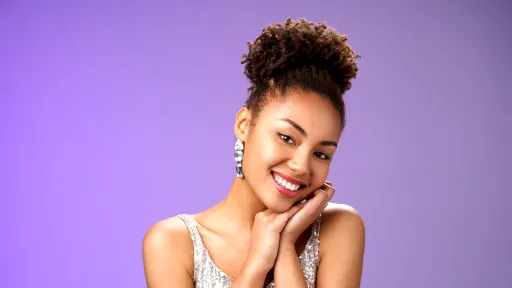
In a bold move (earlier this year) that sparked both applause and controversy, Ivory Coast’s national beauty pageant announced a new rule. No wigs, no weaves and no extensions in the beauty contest.
For the first time, contestants across 13 cities in Ivory Coast are required to appear with their natural hair only, whether braided or straightened, but artificial hair is not permitted. The goal? To celebrate the power of natural African beauty in all its glory.
Victor Yapobi, President of the Miss Côte d’Ivoire organising committee, is quoted as saying that the ban aligns with a broader global trend toward authenticity. He pointed to past Miss Universe contestants who had embraced short, natural hairstyles on the world stage. He argued that this rule would promote self-acceptance and confidence among Ivorian women.
The declaration, aimed at showcasing “raw beauty,” is being hailed by some as a reclaiming of African authenticity, while others see it as a narrow and potentially problematic take on what African beauty really means.
The intention seems clear. To promote natural beauty and encourage African women to embrace their God-given features, hair texture, skin tone, and all. Although we live in a world highly influenced by Eurocentric beauty standards, the decision can be interpreted as a defiant act of cultural pride, a declaration that true beauty doesn’t need enhancement or alteration, and a platform that showcases natural African beauty on the national stage.
But the question remains! Does excluding wigs, weaves, and extensions really promote authentic African beauty, or does it reduce it to a single, rigid definition?
Hair in African cultures holds deep symbolic significance. From traditional braids and cornrows to modern styles like wigs and extensions, hair has long been a symbol of identity, creativity, and expression. To tell a woman she must remove her extensions to be seen as truly “African” is, for many, just another form of policing appearance, this time under the banner of cultural purity.
Some critics argue that banning certain styles doesn’t necessarily free women from pressure, it simply shifts the standard. Instead of being pushed toward Eurocentric beauty ideals, African beauty contestants now face a different kind of pressure. Conforming to a naturalist ideal that may not be feasible or desirable for everyone.
For instance, women living with alopecia or recovering from chemical damage may depend on protective styles to feel confident. Are they now to be disqualified from showcasing their beauty because they choose to wear a wig? Doesn’t authentic African beauty also include the freedom to choose?
Promoting African beauty shouldn't mean limiting it. Instead of banning certain styles, beauty pageants could broaden the definition of what is celebrated. Encourage natural hair—but also honour braids, headwraps, afros, locs, and yes, even creatively styled weaves. What’s African about African beauty is not uniformity, it’s diversity, resilience, and self-expression.
The Ivory Coast pageant's decision sparks an important conversation about representation, identity, and ownership. But perhaps true progress lies not in drawing hard lines, but in creating a wider canvas, where every African woman sees herself reflected, with or without extensions.
In the end, beauty is not only what’s seen, but also how it’s owned. The question shouldn’t just be “What is raw?” but rather: What is real, for her?
About the Writer
Kezio-Musoke David is a seasoned content creator and blogger with a keen interest in social issues, culture, and wellness. He is also the lead content curator at Beauty Marche, where he explores the intersections of beauty, identity, and everyday life across Africa.